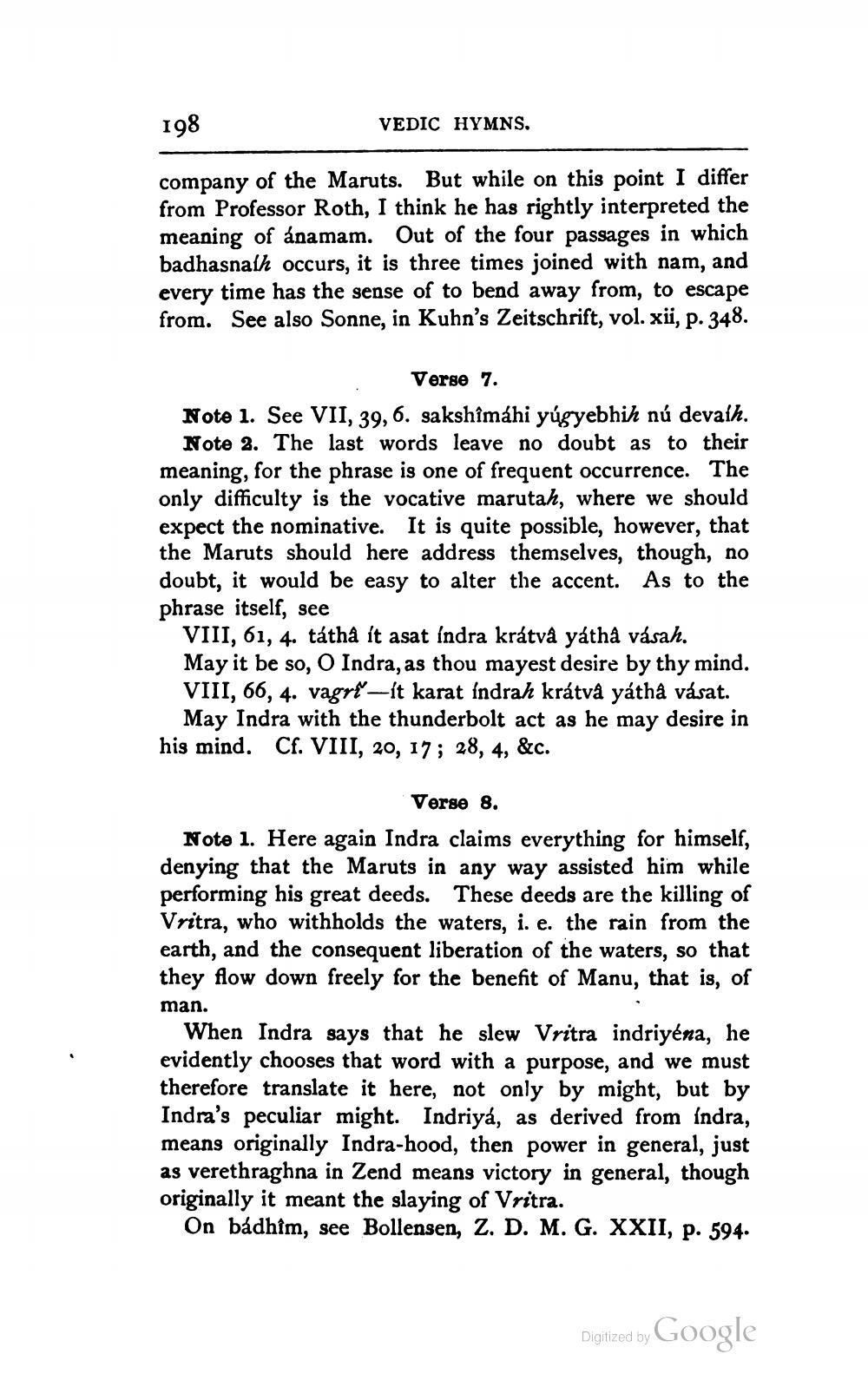________________
198
VEDIC HYMNS.
company of the Maruts. But while on this point I differ from Professor Roth, I think he has rightly interpreted the meaning of anamam. Out of the four passages in which badhasnalh occurs, it is three times joined with nam, and every time has the sense of to bend away from, to escape from. See also Sonne, in Kuhn's Zeitschrift, vol. xii, p. 348.
Verse 7. Note 1. See VII, 39, 6. sakshîmáhi yúgyebhih nú devaih.
Note 2. The last words leave no doubt as to their meaning, for the phrase is one of frequent occurrence. The only difficulty is the vocative marutah, where we should expect the nominative. It is quite possible, however, that the Maruts should here address themselves, though, no doubt, it would be easy to alter the accent. As to the phrase itself, see
VIII, 61, 4. tatha ít asat indra kritva yatha visah. May it be so, O Indra, as thou mayest desire by thy mind. VIII, 66, 4. vagrit karat indrah katva yatha vasat.
May Indra with the thunderbolt act as he may desire in his mind. Cf. VIII, 20, 17; 28, 4, &c.
Verse 8. Note 1. Here again Indra claims everything for himself, denying that the Maruts in any way assisted him while performing his great deeds. These deeds are the killing of Vritra, who withholds the waters, i. e. the rain from the earth, and the consequent liberation of the waters, so that they flow down freely for the benefit of Manu, that is, of man.
When Indra says that he slew Vritra indriyéna, he evidently chooses that word with a purpose, and we must therefore translate it here, not only by might, but by Indra's peculiar might. Indriya, as derived from indra, means originally Indra-hood, then power in general, just as verethraghna in Zend means victory in general, though originally it meant the slaying of Vritra.
On bádhim, see Bollensen, 2. D. M. G. XXII, p. 594.
Digitized by
Digized by Google




